We’ve all seen ants in our yard and perhaps you’ve been unlucky enough to experience trails of ants streaming into the house. Don’t worry – you can manage ants without toxic sprays!
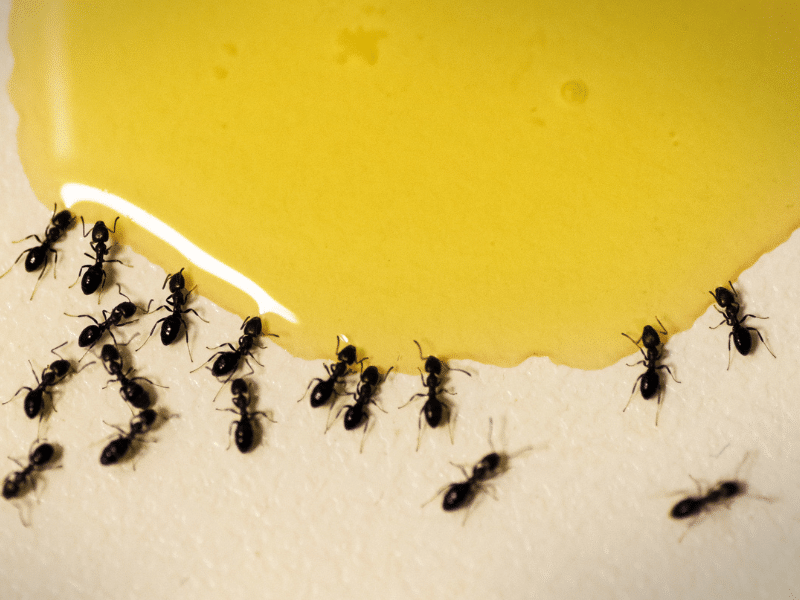
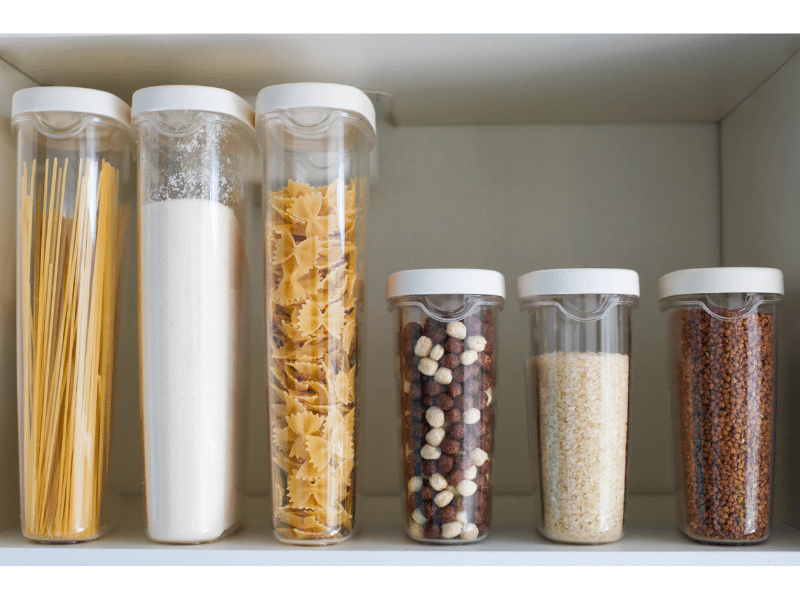
Prevent Ant Problems
Prevention is always best. Ants come inside seeking food or water when it’s dry – or food and shelter when it’s wet. Here are some ways to prevent an infestation:
- Seal cracks in walls with caulk and make sure the weather-stripping on your doors is in good shape.
- Fix leaky faucets or pipes (you’ll reduce your water usage too!).
- Don’t allow mulch, plants, or tree limbs to touch the foundation, walls, or roof of your home. (This is also sound advice for reducing fire risk and rodent damage.)
- Clean up food crumbs or spills.
- Keep especially attractive treats like pet food, sugar, and honey in sealed containers. If ants are attracted to the food in your pet’s bowl, you can place the bowl in center of a tray filled with soapy water. This “moat” will prevent ants from reaching the food.
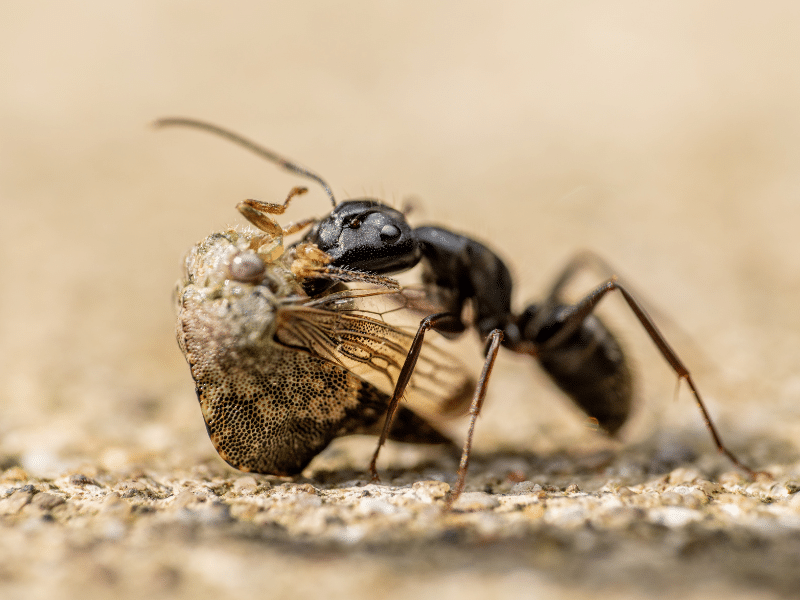
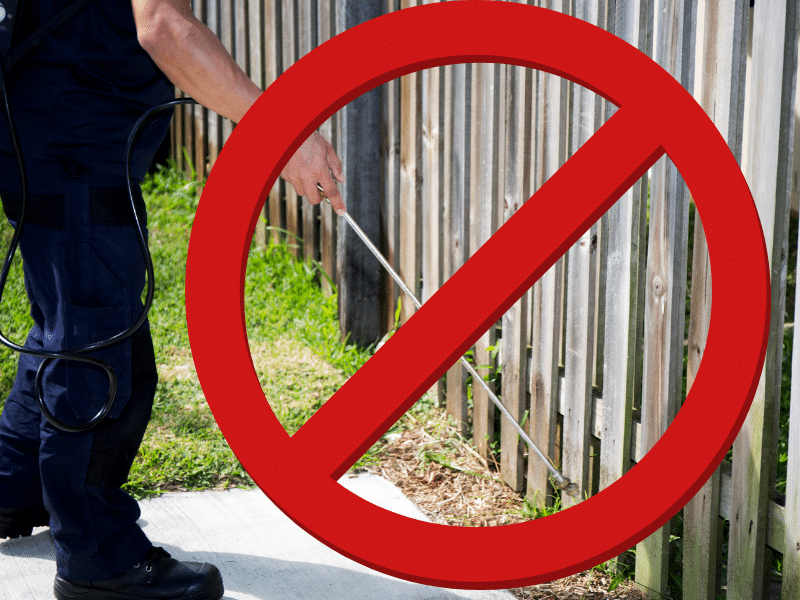
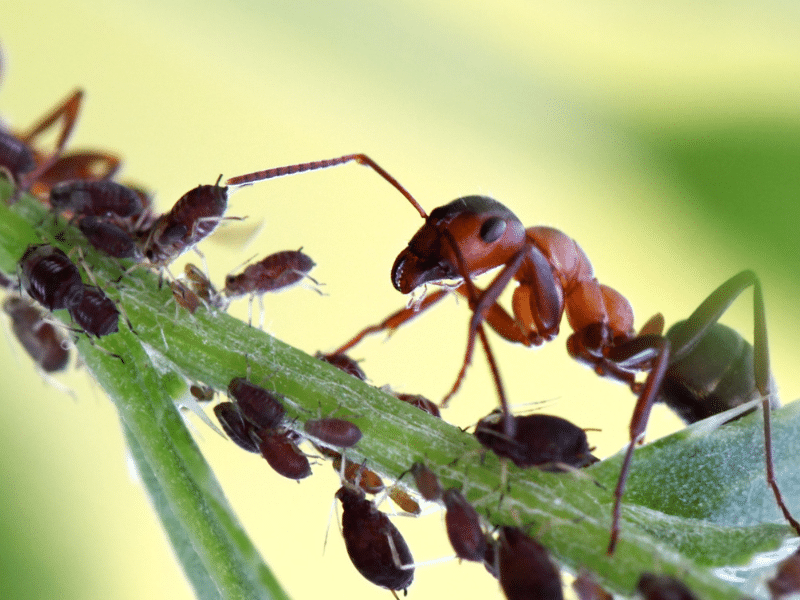
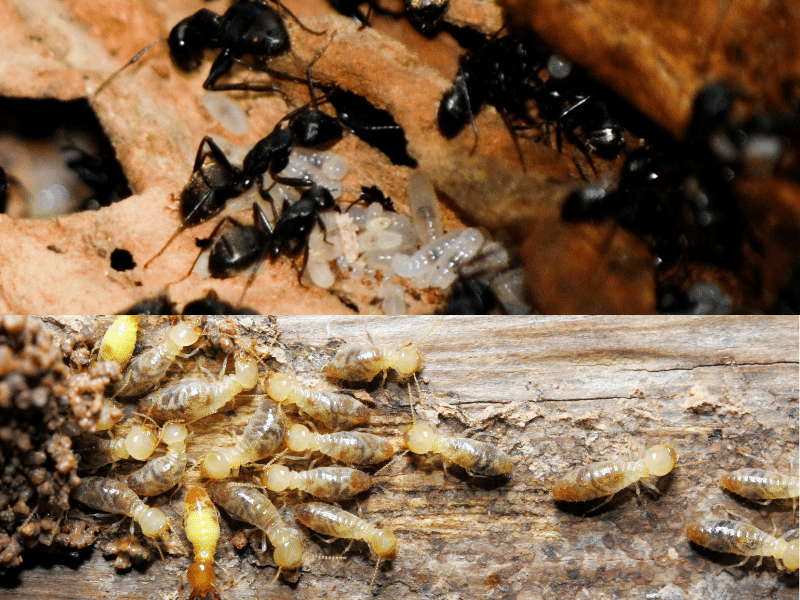
Ants In Your Yard
Ants play an important role in our ecosystem
Seeing ants outside is not usually a problem. In fact, they are generally beneficial.
- Ants eat dead insects and bring decaying material into their underground tunnels, creating fertilizer.
- Ants aerate the soil (like earthworms). Aeration is great for soil health and beneficial for plant roots.
- Ants are an important food source for birds, lizards, and other members of our ecosystem.
Do not spray to kill ants outside
There is no need for toxic sprays or perimeter treatments against ants.
- Insecticidal sprays kill a wide variety of insects (including the good ones!) and can pollute our waterways. Always use a targeted approach for pest management to avoid unintended consequences.
- The perimeter treatments commonly offered by pest control companies are ineffective. These sprays only kill the foraging ants and cannot eliminate the colony or queen.
- Outdoor spraying can actually encourage ants to seek refuge in your home.
- There is no way to eliminate all outdoor ants (and why would you want to?). Do you, your kids, or your pets spend time in your yard? Don’t expose yourselves to pesticides for a treatment that doesn’t even work. Do you enjoy watching birds and hearing their songs? Don’t poison the insects they eat and feed to their young.
Be sure to identify your pest
There are times when outdoor ants can be indicative of a problem.
- Do you see ants clustered around aphids or other sap-sucking insects? The ants are likely “farming” the aphids, enjoying the honeydew these insects secrete and protecting aphids from natural predators. In this case, the ants are actually an indication of an aphid problem. You may want to eliminate these protective ants and make it possible for beneficial insects to take care of your aphid problem. Learn more about how to manage aphids here.
- Carpenter ants can damage your home. Learn how to identify them, prevent an infestation, and eliminate an existing colony.
- Be certain you are not actually seeing termites. This visual will help you tell the difference.
Reducing ants outside
If you need to reduce the outdoor ant population, we recommend baits. They are safe and effective. For specific bait recommendations, click here and scroll down to “Baits”.
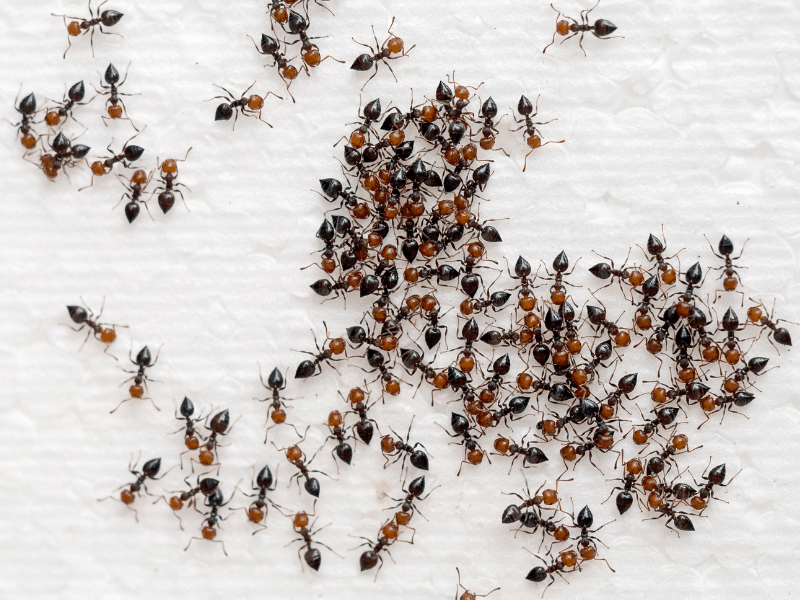
Ants In Your Home
Ants are definitely a pest when they are inside! But don’t spray insecticide in your home.
- Insecticides only kill the ants they touch. You can get rid of as many ants by simply wiping them up.
- If used near baits, the spray will repel ants from taking the bait.
- Insecticides are poison. Don’t expose your children or pets to these dangerous products.
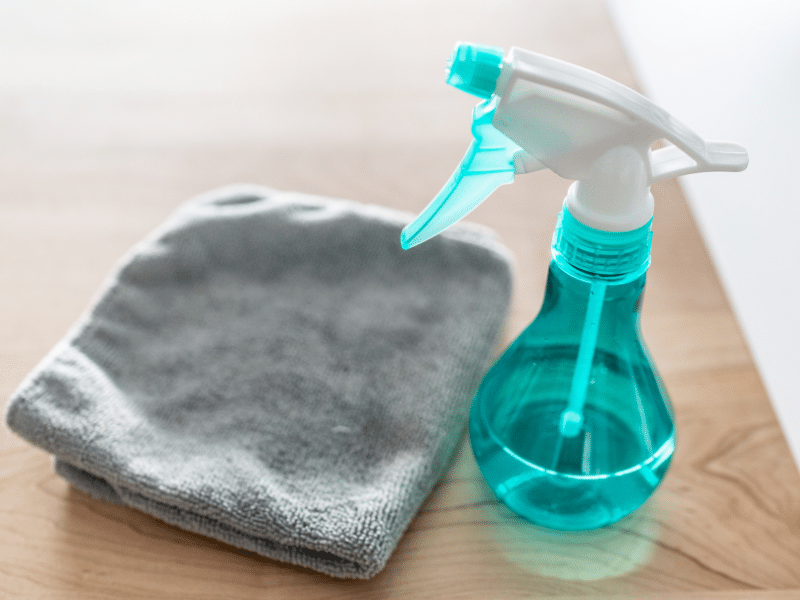
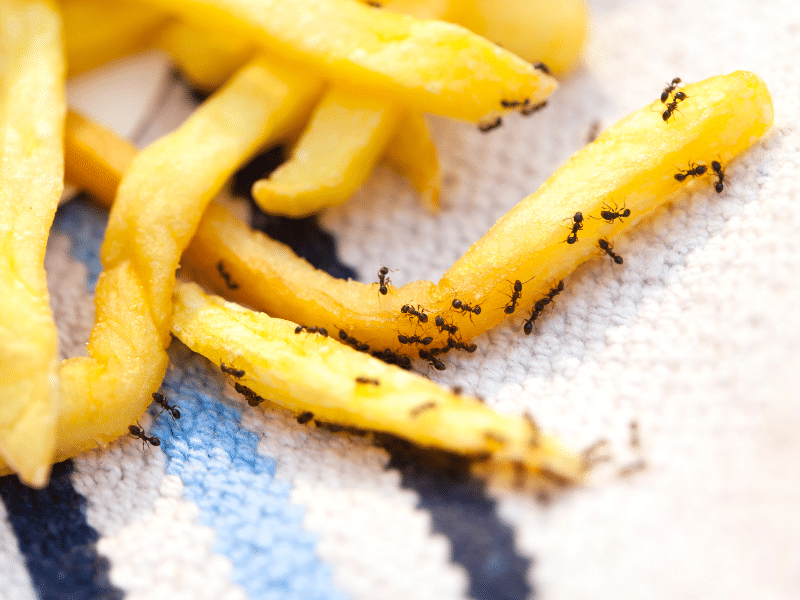
To manage ants indoors, we recommend:
- The first step is just to spray any ants you see with soapy water or a multi-purpose cleaner. Then simply wipe them up with a paper towel. It is important to remove the scent trail that would encourage other ants to follow the path into your house.
- If there is something attracting the ants, eliminate it. For example, clean up any food spills, take garbage out, or empty the compost bin.
- If possible, seal the access point where the ants are gaining entry to the house. Petroleum jelly or tape can be good temporary measures or use caulk or weather-stripping for a more permanent fix.
- If the infestation continues, you may need to use baits to eliminate the queen and the colony. There are a variety of indoor and outdoor bait options available (click here and scroll down to “Baits”). Be sure to place the baits out of the reach of children and pets. Remove baits once you have gotten rid of the ants – or you may attract new ones!
- Have ants in your indoor plants? Click here and scroll down to “Ants In Your Plants” to learn how to eliminate this problem with just a bucket of water and a stick.
Do your neighbors have regular visits from pest companies? Are you concerned about pesticide use near where you live? Contact YardSmartMarin if you’d like us to present safe and effective insect management tips to your HOA or other neighborhood organization.